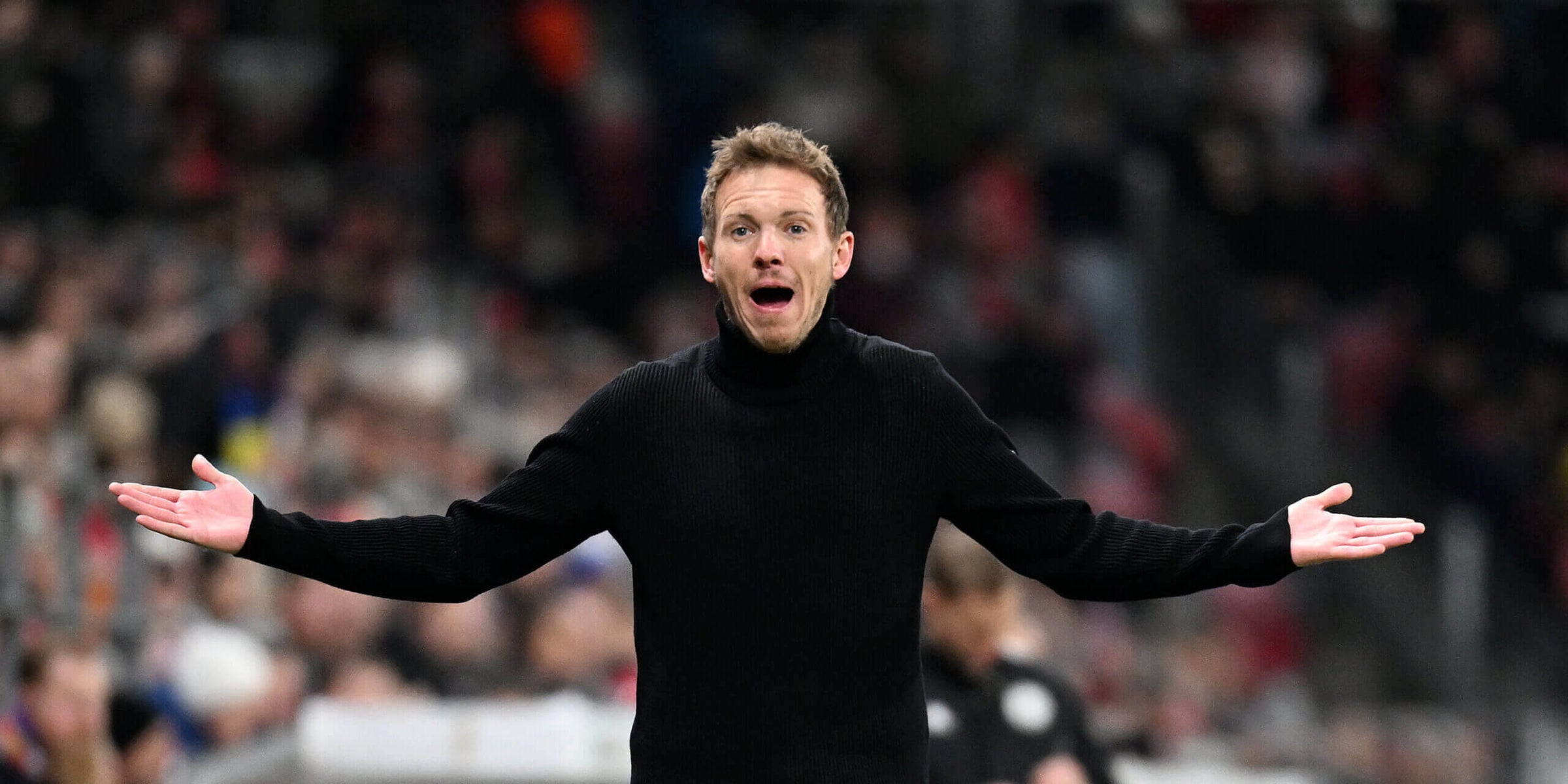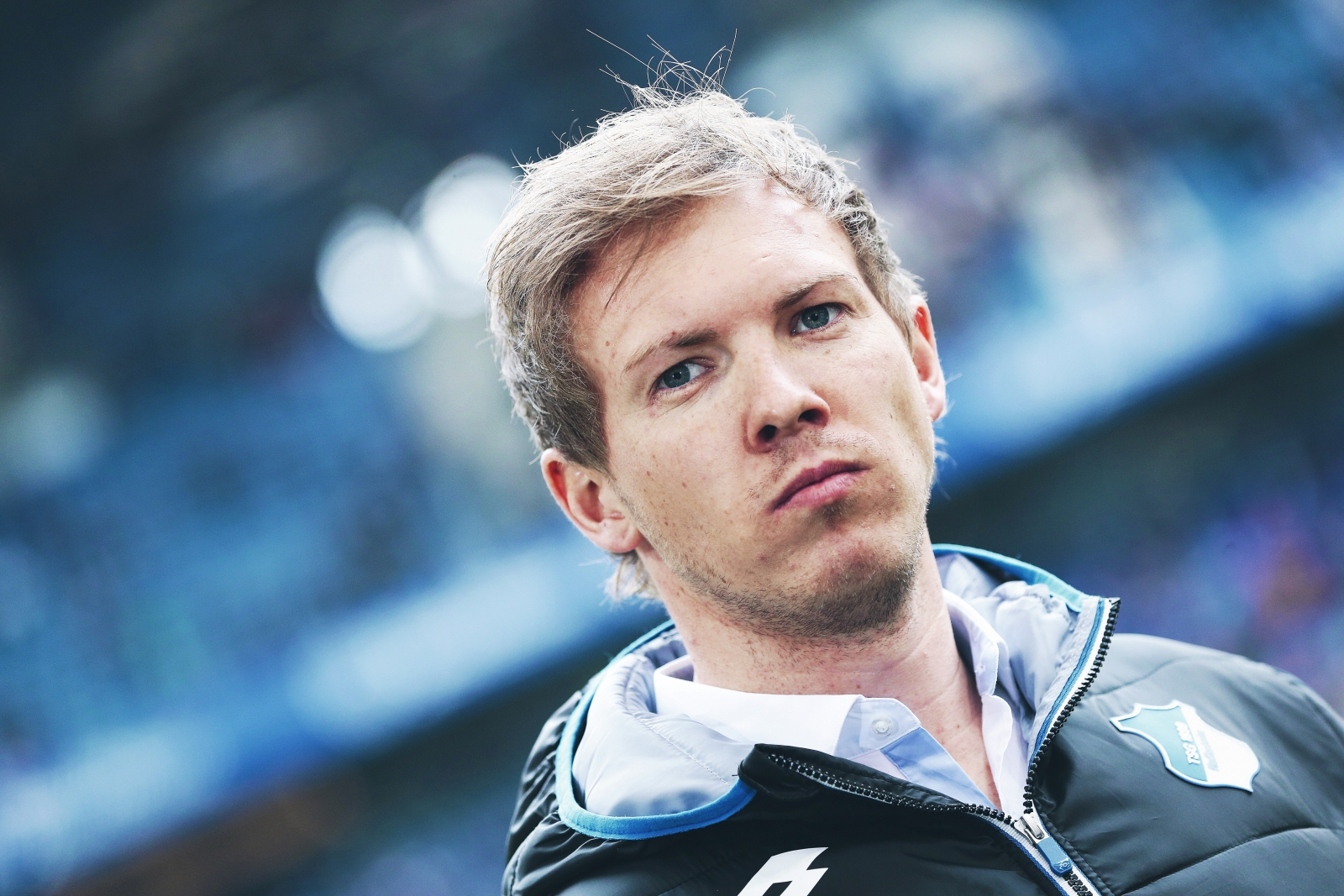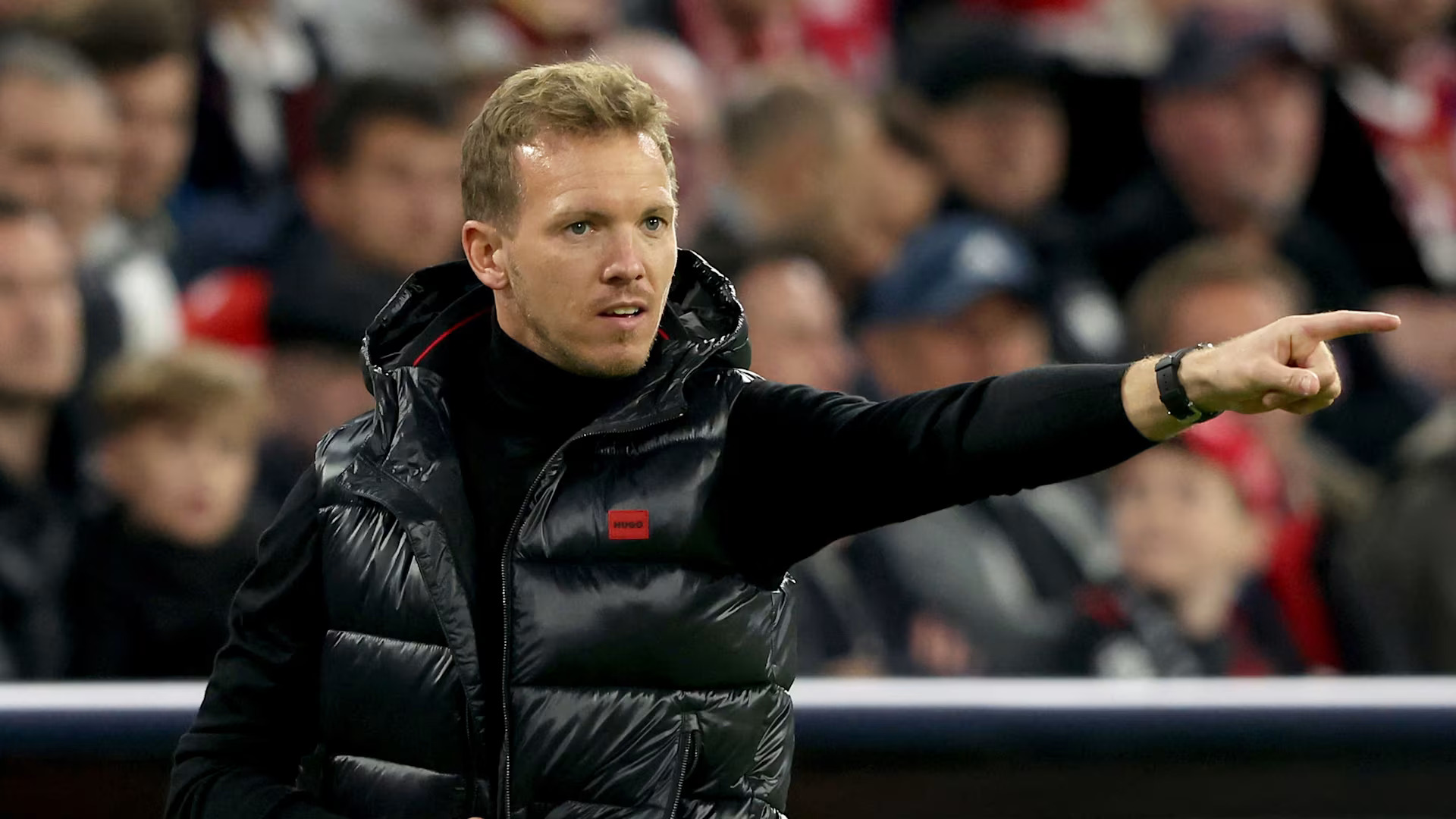In Germany, managing a professional football team traditionally requires a solid playing career followed by a formal coaching education. However, Julian Nagelsmann defied this convention. His rise to prominence challenges the traditional belief that only former top players can become elite managers. His story is both inspiring and perplexing, demonstrating that football management in the modern era is as much about knowledge and innovation as it is about experience on the pitch.
Nagelsmann’s career has redefined what it means to be a football manager in the Bundesliga. While other managers have relied on their playing history to gain credibility, Nagelsmann had to take an entirely different route. His coaching education and ability to analyze the game have become his strongest assets. By proving that tactical knowledge and leadership skills can outweigh playing experience, he has opened the door for a new wave of coaches who prioritize intellect over reputation.

Julian Nagelsmann Redefining Football Management Through Innovation and Adaptability
Nagelsmann’s career trajectory breaks away from football’s established norms, especially in Germany. Without a decorated playing history, his appointment as Hoffenheim’s senior team manager raised eyebrows. His success, however, has paved the way for a new generation of coaches who focus on tactical understanding and innovation rather than personal playing accolades. He has become a symbol of the evolving nature of football management in the 21st century.
A key element of Nagelsmann’s success has been his adaptability. While many young managers struggle to assert themselves in a dressing room filled with experienced players, he has excelled by treating his squad as individuals and focusing on psychology as much as tactics.
His willingness to embrace new training methodologies, data analytics, and modern sports science has given Hoffenheim a competitive edge. This innovative mindset has demonstrated that football management is no longer just about experience but about the ability to learn, adapt, and implement new ideas effectively.
A promising youth career at 1860 Munich and Augsburg was cut short by persistent knee injuries. While many would have struggled with such a loss, Nagelsmann saw an opportunity. He shifted his focus from playing to studying the game, pursuing a business degree before transitioning to sports science. His setback became the foundation for his coaching career, proving that resilience and adaptability are essential in football.
Rather than lamenting his bad luck, Nagelsmann used his time off the pitch to study the game from a different perspective. His analytical mind allowed him to dissect tactical setups, player movements, and team dynamics, which later helped him develop an advanced understanding of the game.
He immersed himself in coaching theory, recognizing that football could be mastered in multiple ways. By turning a setback into an opportunity, he has shown aspiring coaches that intelligence and determination can be just as valuable as natural talent.

Julian Nagelsmann and Germany’s Football Revolution Through Tactical Innovation
Nagelsmann’s rise aligns with Germany’s systemic football overhaul. Recognizing stagnation, German football authorities invested in youth development, coaching education, and a new tactical philosophy. This transformation, as detailed in Raphael Honigstein’s Das Reboot, saw clubs like Hoffenheim emerge as competitive forces through progressive coaching and talent cultivation. Nagelsmann’s journey reflects the effectiveness of this new approach.
Germany’s coaching revolution did not happen overnight. After disappointing international performances, the country recognized the need for a change in its football structure. Investment in coaching education became a priority, ensuring that managers were not just former players but trained tacticians. Nagelsmann, a product of this new philosophy, exemplifies how modern managers can blend strategic thinking with hands-on leadership. His journey embodies the shift from experience-based hiring to merit-based selection, setting a precedent for future managers.
Hoffenheim’s rise through the German football pyramid was rapid and strategic. From the Oberliga Baden-Württemberg in 2000 to the Bundesliga within a decade, the club embraced modern methodologies in player development and management. When Nagelsmann joined Hoffenheim’s youth coaching setup, he became an integral part of this growth, learning from experienced figures while refining his own tactical ideas.
Unlike traditional football powerhouses, Hoffenheim built their success on data-driven scouting and player development. Nagelsmann played a crucial role in shaping the club’s tactical identity, focusing on high pressing, quick transitions, and positional flexibility. His deep involvement in youth coaching gave him valuable insights into player development, which he later applied at the senior level. By nurturing young talent and integrating them into the first team, he ensured Hoffenheim remained competitive despite financial constraints.
Nagelsmann’s coaching education was significantly influenced by Thomas Tuchel, under whom he worked at Augsburg. Tuchel’s recommendation helped Nagelsmann advance through the coaching ranks. Additionally, his admiration for clubs like Barcelona and Arsenal shaped his tactical philosophy. By blending influences from Guardiola, Wenger, Mourinho, and Cruyff, he developed a versatile and adaptive approach to coaching.
His ability to absorb knowledge from different footballing cultures has been a defining trait. Whether studying Barcelona’s positional play or Wenger’s emphasis on attacking football, he has created a hybrid approach that suits his team’s strengths. His willingness to learn and experiment has set him apart from traditional managers who often stick to rigid philosophies.

Julian Nagelsmann Redefining Modern Football Management with Tactical Innovation
In 2013, Hoffenheim faced relegation. Despite being an assistant coach at the time, Nagelsmann played a key role in the club’s dramatic survival, including a crucial win against Jürgen Klopp’s Borussia Dortmund. This experience proved invaluable as he learned to manage high-pressure situations. When he officially became Hoffenheim’s head coach in 2016 at just 28 years old, he was well-prepared for the challenge.
Nagelsmann emphasizes simplicity and adaptability in his tactics. While often deploying a 3-5-2 or 3-1-4-2 formation, he prioritizes fluid movement over rigid systems. Hoffenheim became known for high pressing, quick transitions, and defensive organization. His philosophy—30% tactics and 70% psychological management—ensured that players were mentally and tactically prepared for any match situation.
One of Nagelsmann’s strengths is his ability to tailor his approach to different players. He recognizes the need to educate young players while fine-tuning the skills of experienced professionals. His focus on motivation, adaptability, and man-management has enabled him to extract the best from his squad.
At just 30, Nagelsmann established himself as one of the Bundesliga’s top managers. His success at Hoffenheim proved that coaching talent can thrive without an illustrious playing career. As football evolves, so does its approach to management. Nagelsmann’s journey has set a precedent for aspiring young coaches worldwide, proving that innovation, education, and tactical intelligence can overcome traditional barriers in professional football.







